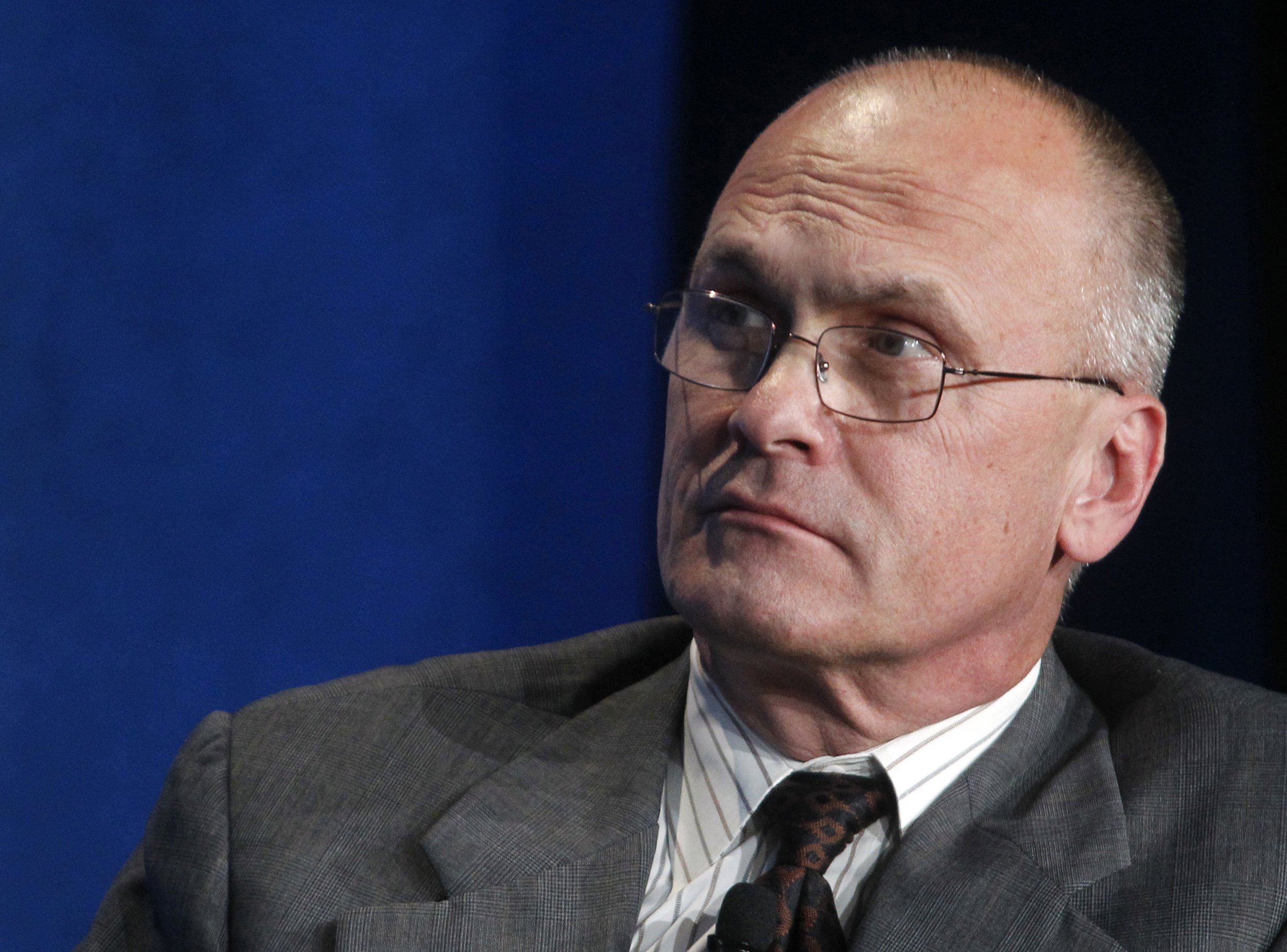
President Trump's nomination of fast food CEO Andrew Puzder to head the U.S. Department of Labor is a betrayal to American workers—including the very workers Trump promised to champion.
The reasons are plenty: Puzder's firms have a long record of violating basic workplace standards. Puzder opposes raising the minimum wage. He expresses disdain for allowing workers to earn overtime, take breaks, or bargain collectively with corporate headquarters.
He even once said he would be interested in trading his workers with machines, because machines "never take a vacation, they never show up late, there's never a slip-and-fall, or an age, sex, or race discrimination case."
But perhaps the ultimate betrayal comes from the fact that Puzder, whose confirmation hearing has now been delayed four times, believes that trickle-down economics is somehow good for the economy.
Trickle-down economics maintains that tax cuts for the rich, low wages for workers, high inequality and less regulations will increase job creation and boost productivity growth. Or as Puzder put it in his book: "Job creation would flourish if government would dramatically cut taxes, decrease regulations, and reduce runaway spending."
Related : Civil Rights Suits Plague Company Run by Labor Pick Puzder
But we tried trickle-down economics for nearly four decades, and it failed. In fact, it is the same failed ideology that caused four decades of wage stagnation, near-record high levels of inequality and that drove the world to a financial crisis in 2007.
Not only did middle class wages stagnate under trickle-down economics, but productivity growth also slowed, the percentage of prime-age American men in the labor market fell and entrepreneurship cratered – even before the Great Recession.
Even worse, trickle-down policies threw the economy into the deep hole from which it is only now starting to recover. Because wages stagnated for decades, Americans had less money in their pockets to buy things, which made the economy reliant on debt-fueled spending.
Coupled with banking deregulation, this toxic mix fueled the Great Recession, causing millions of workers to lose their jobs, millions of homeowners to lose their houses and further depressed wages.
To be sure, trickle-down policies are not the only cause of low wages and high inequality—technology and globalization also play a contributing role. But other countries exposed to these same economic forces as the United States—such as Canada, Sweden, and Australia—charted a different public policy course, one that benefitted most workers.
These countries did not see inequality rise to anywhere near the United States' levels, and their middle classes have experienced significant wage gains over the last few decades.
Economists are increasingly realizing just how bad trickle-down is. Standard & Poor's reduced its projections for future U.S. growth, noting in a report that it views "extreme income inequality as a drag on long-run economic growth."
Similarly, the Director of the International Monetary Fund summed up current research, stating: "Severely skewed income distribution harms the pace and sustainability of growth over the longer term. It leads to an economy of exclusion, and a wasteland of discarded potential."
As secretary of labor, Puzder could cause great damage to the economy. He will determine whether more workers get overtime, employers can classify their workers as independent contractors to shed costs and risks and even whether workers actually get paid what they are legally owed.
Indeed, under Puzder, the Department of Labor is likely to return to the anti-worker agenda it had under President George W. Bush, when it, as the U.S. Government Accountability Office wrote, "left thousands of actual victims of wage theft who sought federal government assistance with nowhere to turn."
Moreover, Puzder maintains – despite all the evidence to the contrary -- that "policies designed to reduce income inequality will not grow our economy," and insists instead that "growing our economy would reduce income inequality" through a trickle-down process.
Puzder's tenure could end up just like that of former Federal Reserve Chairman Alan Greenspan, who was forced to admit to Congress that his trickle-down ideology was a reason he failed to regulate a number of speculative banking practices that helped cause the financial crisis.
Even though President Trump appears to reject some standard Republican orthodoxy, such as on trade, Trump's decision to nominate Puzder to lead the labor department indicates that the Trump administration will put forth more of the same trickle-down nonsense.
We know all too well the damage trickle-down causes. There is no reason to repeat this failure.
David Madland is the author of Hollowed Out: Why The Economy Doesn't Work Without a Strong Middle Class and a Senior Fellow at the Center for American Progress Action Fund.
Uncommon Knowledge
Newsweek is committed to challenging conventional wisdom and finding connections in the search for common ground.
Newsweek is committed to challenging conventional wisdom and finding connections in the search for common ground.
About the writer
To read how Newsweek uses AI as a newsroom tool, Click here.








